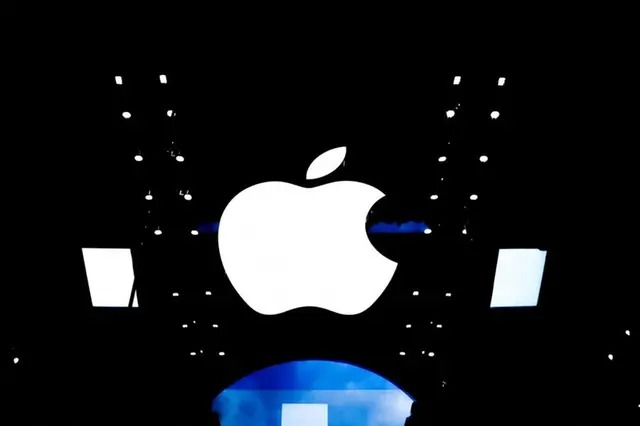Apple is reportedly collaborating with Broadcom to develop an advanced AI chip, according to recent insights from The Information. This partnership marks a pivotal step for Apple as it seeks to strengthen its position in the artificial intelligence domain. Known for its innovation and tight control over its hardware ecosystem, the tech giant is venturing into the creation of a specialized chip designed to enhance AI-powered applications and devices. The collaboration with Broadcom, a well-established semiconductor firm, underscores the growing importance of customized hardware in meeting the demands of next-generation AI technologies.

The implications of this development extend beyond just hardware innovation. As the competition in AI intensifies, companies like Apple must continuously push the boundaries of technology to maintain their edge. This new AI chip is expected to play a critical role in enabling faster, more efficient processing for applications ranging from voice assistants like Siri to machine learning algorithms embedded in Apple’s ecosystem. By working closely with Broadcom, Apple aims to create a chip that meets its high-performance standards while also addressing the specific needs of AI workloads.
AI chips are not new to the tech industry. Companies such as NVIDIA, Google, and AMD have long been investing in specialized hardware for AI, each introducing products that target different segments of the market. However, Apple’s approach is distinct in that it revolves around creating seamless integration across its devices. The goal is to ensure that iPhones, iPads, Macs, and even wearable devices benefit from enhanced AI capabilities without compromising battery life or performance. This integration philosophy has long been a cornerstone of Apple’s strategy, making its partnership with Broadcom a significant move.
The collaboration also highlights Apple’s commitment to reducing reliance on third-party suppliers for critical components. In recent years, the company has increasingly focused on developing in-house technologies, from the M-series chips powering its computers to proprietary designs for wireless communications. By bringing more of its hardware development under its direct control, Apple gains greater flexibility in how it designs and deploys its devices. The AI chip project with Broadcom reflects this trend, positioning Apple to have a competitive advantage as AI becomes even more central to consumer technology.
While details of the AI chip’s design and capabilities remain under wraps, industry experts speculate that it could leverage advanced semiconductor manufacturing techniques, such as those used in the production of Apple’s A-series and M-series processors. These techniques involve using smaller transistors and more efficient architectures to achieve higher performance with lower power consumption. The AI chip, likely to be built on a similar foundation, could significantly accelerate tasks such as natural language processing, real-time image recognition, and augmented reality applications.
The broader implications of Apple’s move into AI hardware are worth considering. By developing its own AI chip, Apple can optimize its software and hardware integration to a degree that is difficult for competitors reliant on third-party solutions to match. This integration could result in faster and more reliable AI-powered features, such as improved personalization in apps, enhanced security measures, and advanced automation capabilities. Moreover, Apple’s commitment to privacy may benefit from this in-house development, as the chip could be designed to process sensitive data locally on the device rather than relying on cloud-based services.
The partnership with Broadcom also carries economic implications. By choosing a U.S.-based semiconductor partner, Apple reinforces its strategy of fostering domestic manufacturing and technology development. This move aligns with broader industry trends and government incentives aimed at strengthening the U.S. semiconductor supply chain. For Broadcom, the collaboration represents an opportunity to expand its presence in the rapidly growing AI market, leveraging its expertise in wireless technologies and chip design.
To contextualize the significance of this AI chip, it is essential to understand the current state of the AI hardware market. A look at existing AI chips from competitors reveals a wide range of applications and benchmarks. For instance, NVIDIA’s GPUs dominate the AI training market due to their unparalleled parallel processing capabilities, while Google’s Tensor Processing Units (TPUs) cater to specific machine learning workloads. Apple’s entry into this space could introduce a new category of AI chips tailored for consumer devices, emphasizing efficiency and seamless integration.
The development timeline for Apple and Broadcom’s AI chip is another critical aspect. Semiconductor projects are inherently complex, involving years of research, prototyping, and testing before reaching mass production. While it is unclear when the chip will be available in Apple devices, the project’s announcement signals a long-term commitment to advancing AI technology. The chip’s eventual debut could coincide with significant product releases, such as a new generation of iPhones or the anticipated mixed-reality headset, ensuring its impact is felt across multiple device categories.
Furthermore, the partnership between Apple and Broadcom demonstrates the interconnected nature of the technology ecosystem. Developing an AI chip requires collaboration across various fields, from materials science and electrical engineering to software development and data science. Broadcom’s expertise in networking and communications complements Apple’s strengths in consumer hardware and software, creating a synergy that could yield groundbreaking innovations.
The potential applications of the AI chip extend far beyond consumer devices. In the enterprise sector, AI hardware can drive advancements in fields such as healthcare, finance, and logistics. Apple’s focus on privacy and security positions it well to tap into these markets, where the ability to process sensitive data securely is paramount. For instance, AI-powered diagnostics on a secure Apple device could revolutionize telemedicine, while on-device machine learning could enhance productivity tools for professionals.
Apple’s collaboration with Broadcom to develop an AI chip represents a significant milestone in the evolution of artificial intelligence technology. The project underscores Apple’s commitment to innovation, integration, and privacy while highlighting the strategic importance of hardware in shaping the future of AI. As the industry continues to evolve, this development could set a new standard for how AI is integrated into consumer and enterprise devices, further cementing Apple’s role as a leader in technology.










Add Comment